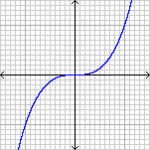 A while back, Jan Freeman was asking a few linguist bloggers about what their own language peeves were. I think at the time I may well have denied having any and at least don't think I came up with anything plausible. Recently, though, I've noticed a usage that actually bugs me in the way that peevologists have peeves: The use of inflection for intonation. Now, if you talk and think about language a lot, you may use inflection in its morphological sense pretty often and this other meaning is disconcerting.
A while back, Jan Freeman was asking a few linguist bloggers about what their own language peeves were. I think at the time I may well have denied having any and at least don't think I came up with anything plausible. Recently, though, I've noticed a usage that actually bugs me in the way that peevologists have peeves: The use of inflection for intonation. Now, if you talk and think about language a lot, you may use inflection in its morphological sense pretty often and this other meaning is disconcerting.This came into focus pretty sharply a couple weeks ago with a Safire column where he uses the word in this way a few times. This morning, waiting for the Packers to face the Lions, I finally got around to looking at what dictionaries say about it, figuring that I was just stodgy here and that it's an utterly unremarkable use. Merriam-Webster's 11th Collegiate suggests as much; it has this meaning second, after only the really basic historical meaning of 'to bend or curve':
change in pitch or loudness of the voiceI really wouldn't have included 'loudness' in here, just pitch, but pitch, loudness and duration are so intertwined in prosodic stuff that it's hard to object. But the Oxford English Dictionary On-line doesn't get to this until its fifth entry:
Modulation of the voice; in speaking or singing: a change in the pitch or tone of the voice.Maybe this is more common American usage than British? (Separated by a Common Language hasn't treated it that I see.)
I've asked a couple of other linguists, and they seem to agree that this is a less than fortunate accident of lexical semantics, but it doesn't seem to bother anybody like it does me. Haven't talked to non-linguists about it, mostly just assuming that there's not much to say there.
Go Pack go!
1 comment:
It can be confusing - is Chinese an inflected language? I've talked to people who thought so, and this is why. It doesn't really annoy me, and I suppose that's because both meanings are so well-established. You do have to make sure you define the term before you use it, though!
Post a Comment